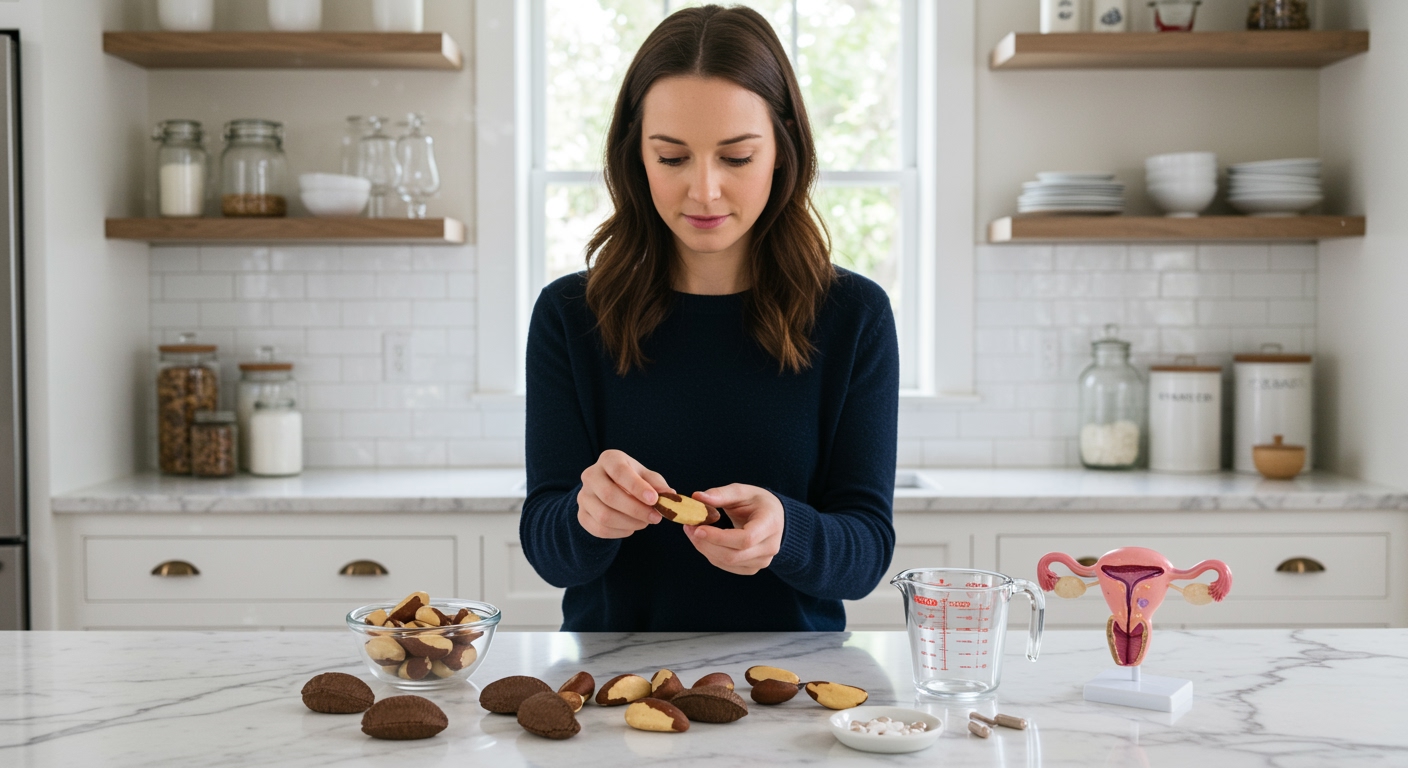✪ Key Takeaway: PCOS women can eat cantaloupe guilt-free when consumed in moderate portions with protein or healthy fats.
Introduction
You stare at that juicy cantaloupe in your kitchen and wonder if eating it will mess up your blood sugar levels.
Many women with PCOS avoid sweet fruits because they fear insulin spikes and weight gain.
Hi, I’m Abdur, your nutrition coach and today I’m going to explain why cantaloupe can actually be part of your PCOS-friendly diet when you eat it the right way.
What Makes Cantaloupe Different From Other Fruits?
Cantaloupe has a moderate glycemic index of around 65, which means it raises blood sugar more slowly than you might expect.
This orange melon contains about 8 grams of sugar per cup, but it also provides 1.4 grams of fiber that helps slow sugar absorption.
The water content in cantaloupe is incredibly high at 90%, which naturally dilutes the sugar concentration.
Unlike processed sweets, cantaloupe delivers essential nutrients including vitamin A, vitamin C, and potassium alongside its natural sugars.
Your body processes whole fruit sugars differently than refined sugars because of the fiber and water content that comes with them.
✪ Fact: Cantaloupe provides 120% of your daily vitamin A needs in just one cup.
How Does Cantaloupe Affect PCOS Symptoms?
The antioxidants in cantaloupe, particularly beta-carotene, help reduce inflammation that worsens PCOS symptoms.
Chronic inflammation disrupts insulin sensitivity, so eating anti-inflammatory foods like cantaloupe can actually support better glucose control.
Cantaloupe contains potassium which helps regulate blood pressure, a concern for many women with PCOS.
The folate content in cantaloupe supports healthy cell division and may help with fertility issues common in PCOS.
Research shows that women who eat a variety of colorful fruits have better insulin sensitivity than those who avoid fruit completely.
The key is not avoiding cantaloupe but learning how to eat it without causing dramatic blood sugar swings.
✪ Pro Tip: Eat cantaloupe after a protein-rich meal to minimize its impact on blood sugar levels.
What Is The Right Portion Size For PCOS?
A proper serving size of cantaloupe for PCOS women is about one cup of cubed fruit, which contains roughly 54 calories.
This portion provides the nutritional benefits without overwhelming your system with too much natural sugar at once.
Eating more than two cups in one sitting can cause a blood sugar spike even in healthy individuals.
Your individual tolerance may vary based on your current insulin sensitivity and what other foods you eat with the cantaloupe.
Some women find they can handle cantaloupe better in the morning when insulin sensitivity is naturally higher.
Others prefer eating it as part of a balanced snack with nuts or Greek yogurt to slow sugar absorption.
✪ Note: Track your blood sugar response to cantaloupe for the first few times to understand your personal tolerance.
When Should You Avoid Cantaloupe With PCOS?
Skip cantaloupe if you have severe insulin resistance and struggle to control blood sugar even with medication.
Avoid eating cantaloupe on an empty stomach first thing in the morning when your body is most sensitive to sugar.
Women following a strict ketogenic diet for PCOS management should limit cantaloupe due to its carb content.
If you experience digestive issues like bloating or gas after eating cantaloupe, your body may not tolerate it well.
Some women notice increased cravings for sweet foods after eating cantaloupe, which can derail their eating plans.
Listen to your body and notice how you feel physically and emotionally after eating cantaloupe.
✪ Pro Tip: Keep a food diary to identify patterns between cantaloupe consumption and your PCOS symptoms.
How Can You Eat Cantaloupe The Smart Way?
Pair cantaloupe with protein sources like Greek yogurt, cottage cheese, or a handful of almonds to slow sugar absorption.
Add cantaloupe to a balanced meal rather than eating it alone as a snack between meals.
Choose fresh cantaloupe over dried or processed versions which concentrate the sugars and remove beneficial water content.
Eat cantaloupe after exercise when your muscles are more receptive to using glucose for recovery.
Consider having cantaloupe as part of your post-workout meal to take advantage of improved insulin sensitivity.
Freeze cantaloupe cubes and blend them into smoothies with protein powder for a satisfying treat that supports your goals.
✪ Fact: Combining cantaloupe with healthy fats can reduce its glycemic impact by up to 30%.
The Bottom Line
Cantaloupe can absolutely be part of a PCOS-friendly diet when you eat it mindfully and in appropriate portions.
The guilt you feel about eating fruit often causes more stress than the fruit itself causes blood sugar problems.
Share your experience with cantaloupe and PCOS in the comments below, and let me know if you have any questions about incorporating fruits into your eating plan.
References
At NutritionCrown, we use quality and credible sources to ensure our content is accurate and trustworthy. Below are the sources referenced in writing this article:
- WebMD: Cantaloupe Health Benefits
- PCOS Weight Loss: Fruits That Are Good for PCOS
- Cleveland Clinic: PCOS Diet
- Medical News Today: PCOS and Diet





